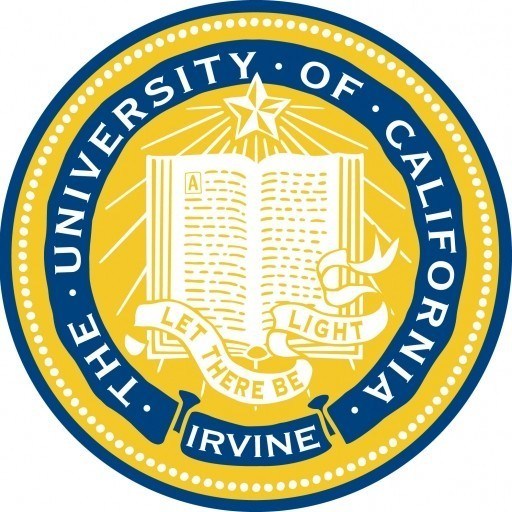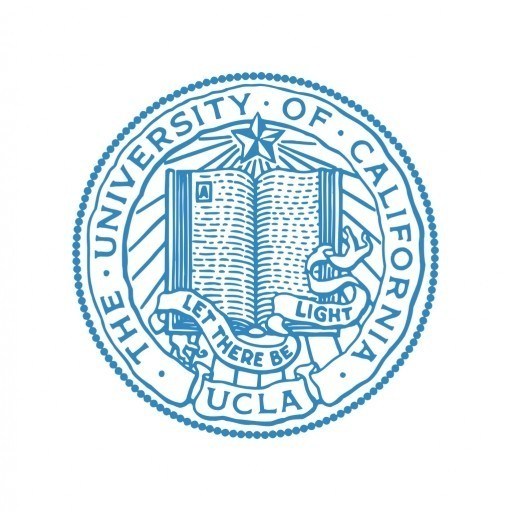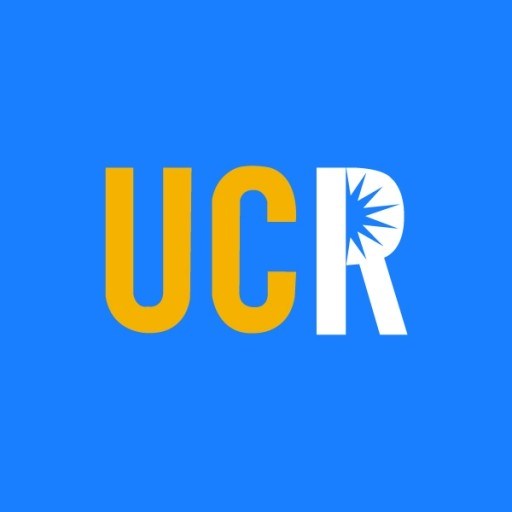Photos of university / #Princeton
The aim of the Department of Spanish and Portuguese is to train students to become effective teachers and scholars of Spanish and/or Portuguese language and culture. Instruction and supervision are so arranged as to ensure that students acquire a broad understanding of the whole field of Spanish and/or Luso-Brazilian studies as well as a specialized grasp of one of its subfields, and are well prepared to develop independently as scholars.
Courses:
The department requires a total of 15 courses to be completed by students by the end of the fifth semester (14 for letter grade credit, and one that may be an audit in the third year). Students normally take three courses in each of the first five semesters of study. In the fifth semester, one of the three courses may be audited. Courses chosen for this fifth term are designed to be particularly relevant to the dissertation.
Ideally, of these 15 courses, students should choose two or three that are offered by departments other than the Department of Spanish and Portuguese (with an absolute maximum of five outside the department). Thus, at least 10 of the 15 courses must be taken in the department. Of these department-based offerings, students are required to take courses in each of the five fields (Medieval/Early Modern, Colonial, Modern Latin American, Modern Peninsular, and Luso-Brazilian).
Students specializing in Hispanic literature and culture are required to take at least one 500-level Portuguese course, and, likewise, students focusing on Luso-Brazilian topics are expected to take at least one 500-level Spanish course.
Third-year students will be permitted to take one of the last two required seminars in the spring semester of the third year, if they wish to do so.
Colloquia and Lectures
The department offers a very lively intellectual climate, with scholarly colloquia, public lectures, workshops, and related events. Attendance of graduate students at such events is strongly urged since these events provide valuable insight into the performative aspects of our profession as speakers, respondents, and presenters.
Students are encouraged to selectively participate and read papers related to their fields of interest at professional meetings in the United States and abroad. Given the demands of the program, however, the department advises that students favor publications in professional journals over conference papers.
Language(s):
Reading proficiency in a foreign language that is relevant to the student’s field of specialization is required. Since we are a Department of Spanish and Portuguese, Spanish and Portuguese are not considered foreign languages.
The language requirement must be completed by the end of the fourth semester (before the general examination), and language exams are normally given by the department once per semester (usually in November and April). Students may also fulfill the requirement by completing an appropriate course, approved by the director of graduate studies.
Pre-Generals Requirements(s):
Students will receive a readling list of 50 books, which they must read before the general exam.
General Exam:
By the end of the second semester, students are expected to declare their primary field of specialization, choosing one of the five possible concentrations:
- Medieval/Early Modern
- Colonial
- Modern Latin American
- Modern Peninsular
- Luso-Brazilian
The general examination consists of two parts.
PART I:
This part of the exam will cover a 50-book reading list that encompasses the five fields. The goal of this part is to test the student’s familiarity with indispensable works in the five fields.
This part will be taken over two consecutive days in the month of May of the fourth semester of enrollment.
On the first day the student will have to answer one question (out of two) on each of the first three fields listed above. Students will have 1 ½ hours per question, or 4 ½ hours total to answer the three questions of this exam.
On the second day the student will have to answer one question (out of two) on each of the fourth and fifth fields listed above. Students will have 1 ½ hour per question, or 3 hours total to answer the two questions of this exam.
PART II:
This portion of the general examination will be in the student’s area of specialization. It will be taken on two consecutive days in the month of September (before classes begin) in the fifth semester of enrollment.
On the first day, the exam will aim to ascertain that the student is conversant with the main theoretical and critical issues and directions of the field of specialization.
The questions on the second day will aim to assess the pertinence and potential contributions to the field of the student’s dissertation.
As a first step in preparation for this part of the generals, by the end of the third semester the student will identify two faculty members in the field of his/her primary area of specialization from among the five fields.
One of these two faculty members will be the dissertation adviser, which the student should choose no later than one month after the end of Part I of the general examination.
The exam will be based on a tailor-made list devised by the student in consultation with the two faculty members. The list’s final version, approved and signed by the two faculty members, must be submitted by the student to the DGS by June 30 .
It is expected that the list will include at least 50 entries. The list should be divided into sections (e. g., theoretical, critical, historiographic, and/or archival sources). The number and content of the sections will depend on the field of specialization and the topic of the dissertation.
The student can choose to take the two parts of the exam at a place of the student's preference, and will be able to consult the materials included in the list.
Students have until 9:00 a.m. the next day to turn in the first day’s essay or essays. Students may not receive the question or questions for the second day until the answer to the first day’s question has been turned in.
Each answer to Part I and to Part II of the general examination will be read by two faculty members, who should agree on a grade for each question and a global grade for the entire examination. These grades should be communicated to the DGS and the graduate administrator.
Qualifying for the M.A.:
The Master of Arts (M.A.) degree is normally an incidental degree on the way to full Ph.D. candidacy and is earned after a student successfully completes all parts of the general examination. It may also be awarded to students who, for various reasons, leave the Ph.D. program, provided that the following requirements are met:
- Successful completion of at least 10 graduate courses with a minimum grade of B.
- No INCs (incompletes) on the transcipt.
- Completion of an M.A. thesis (approximate length of 40 pages). The thesis can be based on a previous research paper. The adviser is the faculty member for whom the thesis is written, and there is also a second reader from among the faculty. Ideally the thesis should be completed before the stduent's enrollment terminates. It may, however, be accepted up to four months after termination.
Teaching:
Students are normally appointed as assistants in instruction (AIs) as part of their overall support package. The classroom experience is of great value for the development of teaching skills. The success of our department in placing its graduates is closely linked to their training and experience in this essential professional activity.
Graduate students will be assigned to teach specific courses based on: previous course evaluations, seniority, appropriateness of field, number of incompletes, and the discretion of the professor in charge of the course. This applies to all levels of teaching, from language courses to precepts.
Students will teach during the fall semesters of their second, third, and fourth years (five to six hours of elementary or advanced language or literary instruction). This will give them time to concentrate on their graduate seminars in their first year, and will also relieve the pressure during the fourth semester, when they will be preparing for their general examinations.
Besides language teaching, graduate students may have the opportunity to teach discussion sections (precepts) in literature courses or assist faculty with the teaching of summer study abroad courses or Global Seminars. If circumstances permit and a student’s area of study is closely aligned to a course, a student may be invited by a faculty member to teach a precept, and in such unique cases the following policies will apply:
- Graduate students invited to be preceptors for courses of 18 or more students will be relieved of their language teaching for that academic year. However, the student must actually lead his or her own precept to receive this course “relief”; he or she cannot, for instance, simply grade for a professor. Princeton in Argentina/Brazil/Spain, Princeton in Cuba, and Global Seminars taught by department faculty with the help of the graduate student will also allow participating graduate students language teaching relief.
- Precepting can only count in lieu of language teaching if the course is within the department, is for a department professor’s class in an interdepartmental program (e.g., a course in Latin American Studies or Interdisciplinary Humanities), is for Princeton in Cuba, or is for a department-led Global Seminar. Courses taught for other institutions cannot substitute for required teaching or precepting in the department.
- If a student uses summer teaching for a Global Seminar or for Princeton in Argentina/Brazil/Spain to count as that academic year’s teaching, he or she will be compensated in the summer and will receive only the regular fellowship during the academic year.
- If a proposed course does not achieve a minimum of 18 students in some advance of the semester’s inauguration, the precept will be eliminated and the student will be reassigned language courses when possible.
- Students may only serve as preceptors for one semester, to enable fair access to this opportunity.
(The department may elect to provide other forms of support fulfilling the teaching requirement, e.g., languages tables, tutoring, etc.).
Students on outside fellowships will also be required to teach, at the department´s discretion. All graduate students will be visited at least once a semester by the head of the course they teach. After the visit, the head of course will meet with the student to discuss performance, offer suggestions and, if necessary, arrange for a follow-up visit. The head of course will also complete a departmental teaching evaluation form, which will be placed in the student´s file.
While these teaching evaluations are confidential and will not be communicated verbatim to a prospective employer, it should be remembered that teaching is an essential part of the student´s training, and the department is usually asked to comment on the student’s teaching performance.
Dissertation and FPO:
The articulation of the dissertation topic and the methodology that will be employed in its writing will be made to the faculty in January of the third year, at the end of the fifth semester, in a 30-minute presentation. It will consist of 1) a detailed oral presentation of the dissertation topic in the language in which the dissertation will be written, and 2) an examination by the faculty on this proposal and its implications. The faculty will make suggestions to the student, either approving the proposal as it stands, or requesting revision and resubmission. At this time, the department may also decide to grant a terminal master's degree.
The student must submit a written version of the proposal doubled spaced to the director of graduate studies (DGS) for transmission to the faculty no later than one week before the public presentation. This document must include an explanatory essay indicating what the thesis proposes to study, and why it is important to the field. In addition, it should detail a chapter-by-chapter outline of the proposed thesis, and should include a substantial bibliography on the dissertation topic. The proposal must be double spaced in 12 point Times New Roman. It should be 15 to 20 pages, and should not exceed 20 pages (5,000 words), exclusive of the bibliography.
After the presentation of the proposal to the faculty, the DGS will communicate the faculty’s comments to the student. If judged unacceptable, the proposal may be resubmitted one time only after revision.
The Thesis-Writing Workshop
In the fall of the fourth and fifth years, students writing their theses may participate in an informal series of meetings with faculty members to discuss aspects of dissertation research, writing, and structure.
The Language of the Dissertation
Students wishing to write their dissertation in Spanish or Portuguese rather than in English must obtain the prior approval of the DGS, who will consult with the dissertation director. If permission is granted, an explanatory letter from the thesis director and a formal request by the DGS will then be sent to the Deputy Dean of the Graduate School, who normally approves the request.
Advising and Scope of the Dissertation
The dissertation director will usually be the first examiner to the student’s general examination. The choice of a director is a matter to be arranged by the student with the faculty member. A second reader should then be selected, at the earliest opportunity, by the dissertation director, after consultation with the student and the DGS.
Timely progress on the dissertation is a prerequisite for reenrollment each year and for financial aid. Before graduate students are hired as preceptors or research assistants by faculty members, their dissertation adviser must agree that such employment will not significantly delay completion of the dissertation.
It is assumed that the scope of the dissertation will be such as to allow for its completion in two and a half years. Both the director and the second reader will be kept up to date on the student’s progress, and will read, judge, and critique chapters as they are produced. Both the director and the second reader should approve a final first draft before the dissertation is produced in its final form.
The Graduate School obligates the department to review dissertations submitted by students who are within five years of passing the general exam and continue to hold degree eligibility. After that time, the department is under no obligation to direct or receive a dissertation, and does so at its own discretion.
Taking as a hypothetical example a dissertation of four chapters and an introduction, the optimal timetable would be as follows:
Chapter One, July of 3rd year;
Chapter Two, December of 4th year;
Chapter Three, May of 4th year;
Chapter Four, October of 5th year;
Introduction, February of 5th year;
Final Version, April of 5th year.
Final Public Oral Dissertation Defense
There are three examiners at the defense. Only one of the two readers may serve as principal examiner. The remaining two examiners are selected from among other members of the faculty.
The examination consists of the following three parts: 1) a brief (thirty-minute) presentation by the candidate of the dissertation in English, Spanish, or Portuguese; 2) an examination by the three principal examiners; and 3) questions by other faculty in attendance. The exercise usually lasts an hour and a half. The Final Public Oral is open to all members of the University community, and other graduate students are welcome to attend.
- Application Fee: $90
- Statement of Academic Purpose
- Resume/Curriculum Vitae
- Recommendation Letters
- Transcripts
- Fall Semester Grades
- Prerequisite Tests
- English Language Tests
- GRE : General test
- Sample of written work including material in Spanish or Portuguese.
Want to improve your English level for admission?
Prepare for the program requirements with English Online by the British Council.
- ✔️ Flexible study schedule
- ✔️ Experienced teachers
- ✔️ Certificate upon completion
📘 Recommended for students with an IELTS level of 6.0 or below.
For Ph.D. candidates, tuition and fees during a student’s regular period of enrollment are provided in full from a student’s graduate student financial support, in the form of tuition support from fellowships, assistantships, or external sources.
The annual stipend amount provided to Ph.D. candidates during their regular enrollment is intended to support a single graduate student based on estimated costs. Master’s students or students with spouses and/or dependents may require additional resources to support their living expenses
Master's Degree in Philosophy at Princeton University offers an in-depth exploration of fundamental questions regarding existence, knowledge, values, reason, mind, and language. This program is designed for students interested in advanced philosophical analysis, research, and teaching. The curriculum encompasses a broad range of philosophical traditions and methodologies, including ancient, modern, and contemporary philosophy, logic, ethics, metaphysics, epistemology, political philosophy, and philosophy of science. Students have the opportunity to engage with distinguished faculty members whose expertise spans diverse areas of philosophy, fostering an environment of intellectual rigor and inquiry.
Students are encouraged to develop their own research interests through seminars, independent studies, and a thesis project that contributes original insights to the field. The program typically requires two years of full-time study, with courses structured to accommodate both coursework and research activities. Participants also have access to extensive university resources, such as libraries and research centers specializing in philosophy and related disciplines. Graduates of this program are well-prepared for careers in academia, research institutions, writing, or related fields requiring critical thinking and thorough analytical skills. The program emphasizes both theoretical understanding and practical application, aiming to develop students' abilities to think deeply and communicate effectively about complex philosophical issues.




